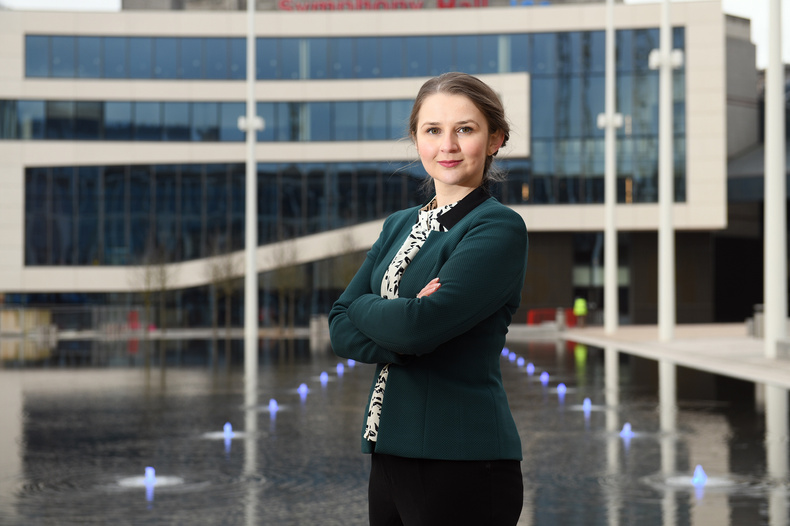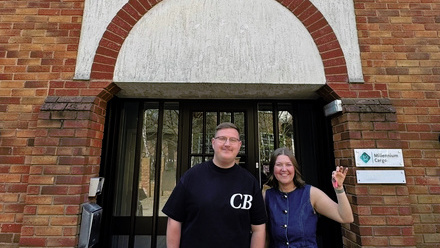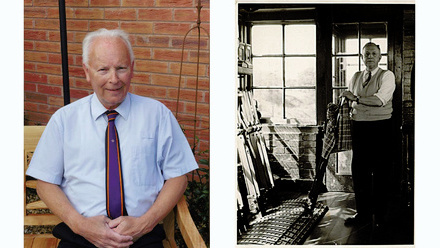Why council troubles should not mask Birmingham's many strengths

It’s been another complicated few weeks for Birmingham, to put it mildly, writes Henrietta Brealey.
On the one hand, the positives – the Deloitte Crane Survey 2024 reported “an excellent year for Birmingham…The city is a hive of activity, with construction at historically high levels.”
HS2’s Trains to Cranes report demonstrated a 66 per cent increase to date in planning applications in areas surrounding key HS2 sites with a predicted £10bn economic uplift over the coming years.
At the launch event for the report, Stephen Knight, the man behind Peaky Blinders and Digbeth Loc Studios, described HS2 as “a gamechanger” and outlined his own transformative activity to kickstart an internationally recognised film and TV production industry in the city.
On the other hand, we have also seen the stark reality of what to expect from cuts to Birmingham City Council’s budget following Birmingham’s Section 114 notice last September.
The proposed budget, which councillors will meet to discuss on 5 March, makes for grim reading: £23.7m from Adult Social Care, £51.5m from Children’s, Young People and Families services, 50 per cent cuts to arts and cultural funding next year and 100 per cent next financial year, not to mention two years of 10 per cent increases in council tax for residents and a suite of other reductions to budgets and services.
The most important issue is understanding, and looking to best mitigate, the potential impacts of these cuts on the most vulnerable and the soul of this city as a great place to live and visit.
But it also leaves many in the business community with something of a challenge. How do we engage with and address the very real issues at play, without talking the city down? Because as Deloitte go on to set out in the Crane Survey, despite it all, Birmingham is “still very much open for business”.
I’ve certainly felt that tightrope in recent weeks as I moved between hosting the launch of the HS2 report and undertaking media interviews on the construction boom in the city to responding to the budget announcements and talking to impacted sectors.
We can be desperately concerned about the state of funding for arts and culture, while also being proud of our city’s great strengths in the space and wanting the world to visit and see it for themselves.
I must particularly commend the work of Culture Central, the collective giving a voice to arts and culture in the region, for their work in this area. The threats to the arts, and in particular outreach and access to the arts, are real.
So too are the city’s enduring strengths as a hive of creativity. In fact, there is so much happening here this summer that the first initiative from Birmingham’s new City Curator, Alex-Nicholson-Evans, is aiming to capture and promote it all under the banner 100 Days of Creativity. Starting with the closing night of Flatpack Film Festival on 19 May and ending with a bigger than ever Birmingham Big Weekender on 26 August, the city will be alive with a celebration of creativity in all its forms.
There’s a nuanced picture in other key areas. We can be shocked at the scale of the proposed cuts to adult and children’s services and what that means for our most vulnerable communities, while also proud of Birmingham’s education ecosystem and this being a great place to live.
We need to seek clarity on the Council’s future capacity as a key stakeholder in areas such as planning and economic development, while seeing right before our eyes how desirable a place Birmingham is to invest by counting the cranes in the sky and new office openings.
In a city of this size, it can sometimes feel like we’re talking about two completely different places, when its two sides of the same coin. It’s a hard balance to strike.
The risk of not talking about it is missing a chance to address emerging issues and gaps. The risk of talking it down is that negative perceptions become a reality.
Soon after the news broke on Birmingham’s section 114 notice last year, I was filming a Sunday Politics Midlands interview on investment zones.
The first question opened with “so Birmingham is a bankrupt city” - a record which was swiftly set straight. A city council and a city are not one and the same. These messages do matter.
When I look at Birmingham and what we’re building here, the way the city has transformed and continues to evolve and adapt, I’m not disheartened. I’m proud of this place. Just a couple of weeks ago, we held our Greater Birmingham Chambers of Commerce Awards.
Well over 1,000 people gathered at the ICC, one of – if not the – biggest business awards in the country.
This city-region is showcasing excellence in everything from people development, community impact and environmental sustainability to innovation, customer service and international trade.
There is so much knowledge and talent in this city that, between us, we’ve got what it takes to navigate the path ahead.
In my view, we’re going to need three things over the coming months: pragmatic optimism, relentless collaboration and, of course, the third factor: accountability.
It’s clear that many local authorities across the country are facing significant budgetary pressures. It’s also very clear that there are unique circumstances impacting Birmingham.
As the path ahead crystalises we are also going to need to look back at just what went wrong for so long and learn lessons about what should never be repeated again.
So, like many, I’ll continue to walk the tightrope between singing this city’s praises and leaning into its challenges.
I might misjudge my steps and tilt too much to one side or other at times, but always with Brum’s motto in mind – ‘Forward’.
Henrietta Brealey is CEO of Greater Birmingham Chambers of Commerce
This column first appeared in the Birmingham Post



